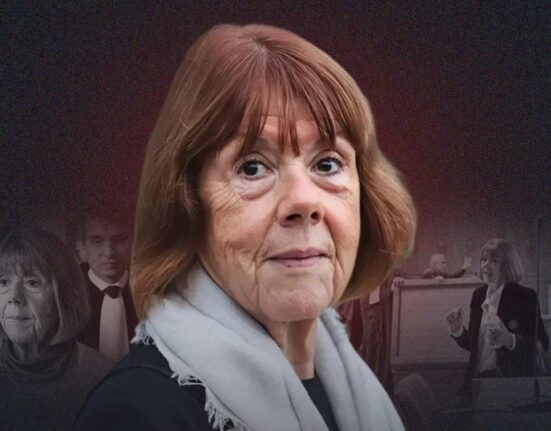Unfortunately, we see many of these cases every day when we look at the newspaper or TV channels. Childhood sexual abuse is a cancer to our society. It is one of the most offensive crimes one can commit in this world. When a perpetrator exploits a child for their sexual pleasure with a completed or attempted sexual act is called sexual abuse. This can be in the form of any sexual activity to a minor, either by threatening them or asking them (At this age a child is a minor and they are not eligible to provide consent for a sexual activity). Abuse can occur at any place including home, school, hostel, work etc. by any known or unknown person and can happen to anyone.
A study shows 1 in 9 girls and 1 in 20 boys under the age of 18 experience sexual abuse or assault. 82% of all victims under 18 are female. And females of ages 16 to 19 are 4 times more likely than the general population to be victims of rape, attempted rape, or sexual assault. According to the NCRB data from 2020, approximately 28.9% of the entire child population experienced some form of sexual crime, yet only 65.6% of these crimes were reported.
And one shocking revelation says, most of the perpetrators are close to the victim, and their family. Sexual abuse is not limited to physical abuse even, producing, owning or sharing child pornography, calling or messaging a minor, masturbating etc. comes under these heinous crimes against a child.
Signs of Childhood Sexual Abuse
There are a few signs and symptoms to look for if a child is being sexually abused. The symptoms can be commonly categorized as physical symptoms and behavioural symptoms.
Physical symptoms include;
- Abnormal bleeding or bruising of genitals
- Yeast infections
- Burning sensation in the genitals
- Pain sensation in the genitals
- Trouble walking or sitting
- STIs
Behavioural symptoms include;
- Avoidance
- Escaping tendencies
- Frequent bathing or no bathing
- Signs of depression, PTSD, phobias and fears
- Trouble at school
- Suicidal ideation and self-harm
Effects of Childhood Sexual Abuse
Children who face these circumstances are often unaware that sexual assault is a crime as they might lack sex education and what are the things one can not do to our bodies. The other population being aware of sexual abuse being a crime is often frightened by the fact that their family might not understand it, or blame them for being the cause of it. Suppressing these experiences often leads to various mental health issues such as depression, anxiety and phobia, trauma, post-traumatic stress disorder etc. which can cause several self-harming tendencies or even suicide.
Depression due to Childhood Sexual Abuse
Depression is characterized by constant low moods, lack of interest in doing things that they used to like before, negative thoughts about themselves and guilt or shame of their current situation. Depression is one of the most common long-term effects of childhood sexual abuse. Survivors of abuse often face difficulty in continuing their lives in the same way as they used to do before. Having negative thoughts, and self-harming tendencies, people often become extremely critical of themselves and think negatively about their entire existence. Suicidal thoughts are often accompanied by depression.
Anxiety and Phobias Due to Childhood Sexual Abuse
Stress, anxiety and phobias due to sexual assault are common. Sexual abuse in childhood can often cause extremely frightening thoughts, anxiety attacks and Phobias. A study revealed that childhood sexual abuse can result in symptoms comparable to symptoms from war-related trauma (McNew & Abell, 1995). Phobias can be of things, people with a significant characteristic or places with some relation to the experience before or even agoraphobia.
Trauma or Post Traumatic Stress Disorder due to Childhood Sexual Abuse
PTSD or Post Traumatic Stress Disorder is characterized by flashbacks, agitated behaviour, irritability, terrifying dreams, frequent bed-wetting, thumb sucking, crying spells and avoidance. Persons experiencing assault in their childhood often experience these symptoms as a long-term aftereffect of the issue. They experience recurrent feelings of fright and guilt and find it difficult to experience enjoyment in life.
Treatments of Childhood Sexual Abuse
It’s difficult for people surviving such events but you are not alone. Going to therapy, undergoing proper treatment can reduce the pain and symptoms of the distressing experience. Considering psychotherapy, counseling and medication can help you manage the symptoms. Psychotherapy and Counseling: Cognitive Behavioral Therapy with the focus on trauma can help reduce the guilt, shame and negative ideation of oneself and help one manage symptoms better. It is especially beneficial for people experiencing depressive disorders, anxiety, trauma or PTSD as an after effect of the assault. In Addition to cognitive behavioral therapy, desensitization, exposure therapy and cognitive processing therapy can be used.
Medication: SSRIs or Selective Serotonin Reuptake Inhibitors are a class of antidepressants which are effective in lessening the symptoms of anxiety, and depression. Other anti anxiety medications can be a part of the medication therapy when in need.
Helpline numbers:
RAHI Recovering and Healing from Incest. A support centre for women survivors of child sexual abuse — (011) 26238466/ 26224042, 26227647
Child Line- is a 24-hour, FREE, nation-wide phone outreach emergency helpline for children in need of care and protection — 1098
Suicide Helpline: iCall – 9152987821
Read More articles From Psychologs
- Impact of Parental Abuse on Child Development
- Sexual abuse, types and related disorders
- Verbal Abuse: Why it isn’t a big deal in India?
- Overcoming Learned Helplessness for Mental Well-Being
References +
- https://www.google.com/amp/s/www.indiatoday.in/amp/education-today/featurephilia/story/child-sexual-abuse-in-india-alarming-statistics-lifelong-impact-how-to-heal-2416285-2023-08-04
- https://www.verywellmind.com/symptoms-of-ptsd-after-a-rape-2797203
- https://www.verywellmind.com/was-i-sexually-abused-21947#toc-childhood-sexual-abuse-statistics
- https://www.ncbi.nlm.nih.gov/pmc/articles/PMC5810166/
- https://www.ptsd.va.gov/professional/treat/type/sexual_abuse_child.asp
- https://www.rainn.org/statistics/children-and-teens#:~:text=Child%20Sexual%20Abuse%20Is%20a%20Widespread%20Problem&text=One%20in%209%20girls%20and,experience%20sexual%20abuse%20or%20assault.&text=82%25%20of%20all%20victims%20under%2018%20are%20female.&text=Females%20ages%2016%2D19%20are,attempted%20rape%2C%20or%20sexual%20assault.













Leave feedback about this